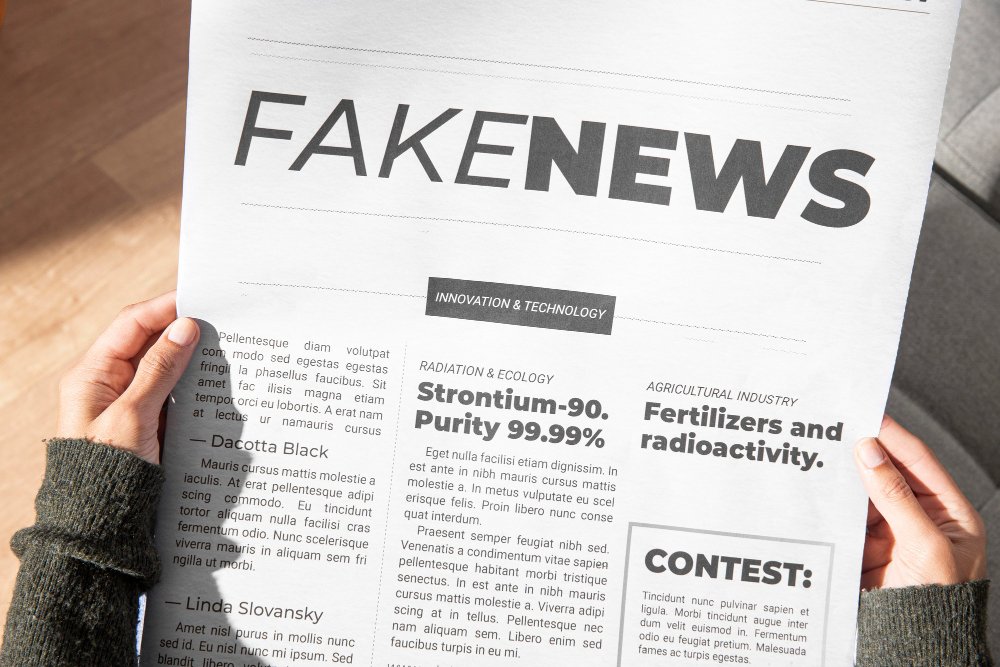Silent Killers: The Lethal Consequences of Health Misinformation
Roma Bhavsar
April 2024
What is Misinformation?
Misinformation is defined as information that is inaccurate, misleading, or false and deliberately intended to deceive.[1,2] According to the current Surgeon General of the United States, Dr. Vivek Murthy, “health misinformation is a serious threat to public health. It can cause confusion, sow mistrust, harm people’s health, and undermine public health efforts.” A dire consequence of health misinformation can lead individuals to decline vaccines or essential medicines, ignore public health measures, and consume unproven treatments that pose potential harm when ingested.[2]

Navigating Reliable Sources in the Social Media Era
In the past decade, an increasing number of people began to rely on social media for their news. Although convenient, accessing information online poses significant challenges because not all content is reliable, leading to the rapid spread of misinformation.
One of the biggest ways to avoid getting wrong information is to make sure you are getting facts from credible, reputable, and cited sources. From a health perspective, this could be a peer-reviewed medical journal (The New England Journal of Medicine, The Lancet, etc.) or educational website (.gov and .edu), a health organization such as Mayo Clinic, or a reputable online newspaper.[3] Misinformation is detrimental to society and can lead to increased fatalities and exacerbated public health crises; ultimately endangering the lives of our loved ones and people within our communities.
Identifying the most vulnerable individuals to misinformation allows for targeted allocation of resources and attention to those who are most susceptible. Certain demographics, including the elderly, young individuals, frequent social media users, and those with limited formal education, are particularly vulnerable to misinformation. Additionally, individuals with strong political affiliations are more inclined to believe information aligning with their existing biases, especially when it originates from trusted sources. This highlights the critical concern surrounding the dissemination of misinformation among susceptible populations.[4]
Decreasing the Burden of Misinformation
Unfortunately, the vast amount of healthcare misinformation has significantly influenced how and where people look to consume information, often leading to a lack of verification of its authenticity.
There are numerous solutions to mitigate the impact of misinformation. A collaborative approach involving governments, health entities, technology firms, social media, and the public is essential. Governments must rebuild trust by delivering clear, frequent messages and demonstrating transparency in decision-making processes. Identifying vulnerable populations and factors contributing to susceptibility is crucial for targeted interventions. Governments should collaborate with health organizations to create platforms that easily disseminate evidence based information. Social media companies need to enhance surveillance of their platforms and create frameworks for removing false data. Phone apps providing up-to-date scientific data and government recommendations can help combat misinformation effectively.[3] Lastly, creating awareness campaigns, implementing legal policies, and enhancing health literacy are additional strategies that can be executed.[1]
During the COVID-19 pandemic, it was evident that healthcare misinformation had significantly influenced public behavior. Social media was a driving force in misinformation spreading and a way to mitigate this risk is increased monitoring of websites to remove incorrect information, using algorithms and software to comb through and fact check data, and working more closely with evidence-based, peer-reviewed medical journals.[3]
What Does This All Mean?
Misinformation about the COVID-19 virus’s spread has made people less cautious in recent years. Moreover, doubts about vaccine safety, fueled by false claims, have led to widespread hesitancy. This highlights the need for trustworthy health information and vigilant monitoring of social media. To tackle this “infodemic,” collaboration among governments, scientists, social media companies, and community organizations is vital.[3]
Those who share information publicly, particularly healthcare professionals who are seen as scientific subject matter experts, have a moral duty to ensure the information they share is sourced from reputable sources. Given their influence, their words can profoundly shape public perception and behavior.[4]
Enhancing the quality of health information we consume has widespread benefits, enabling us to make informed decisions for ourselves, our families, and our communities while mitigating the spread of misinformation.[2]
References
[1] World Health Organization. (2022, September 1). Infodemics and Misinformation Negatively Affect People’s Health Behaviours. www.who.int.
https://www.who.int/europe/news/item/01-09-2022-infodemics-and-misinformation negatively-affect-people-s-health-behaviours–new-who-review-finds
[2] Health Misinformation — Current Priorities of the U.S. Surgeon General. (n.d.). www.hhs.gov. https://www.hhs.gov/surgeongeneral/priorities/health
misinformation/index.html#understand
[3] Ferreira Caceres, M. M., Sosa, J. P., Lawrence, J. A., Sestacovschi, C., Tidd-Johnson, A., Rasool, M. H. U., Gadamidi, V. K., Ozair, S., Pandav, K., Cuevas-Lou, C., Parrish, M., Rodriguez, I., & Fernandez, J. P. (2022). The Impact of Misinformation on the COVID-19 Pandemic. AIMS Public Health, 9(2), 262–277. https://doi.org/10.3934/publichealth.2022018
[4] Nelson, T., Kagan, N., Critchlow, C., Hillard, A., & Hsu, A. (n.d.). the Danger of Misinformation in the Covid-19 Crisis. https://www.ncbi.nlm.nih.gov/pmc/articles/PMC7721433/pdf/ms117_p510.pdf





